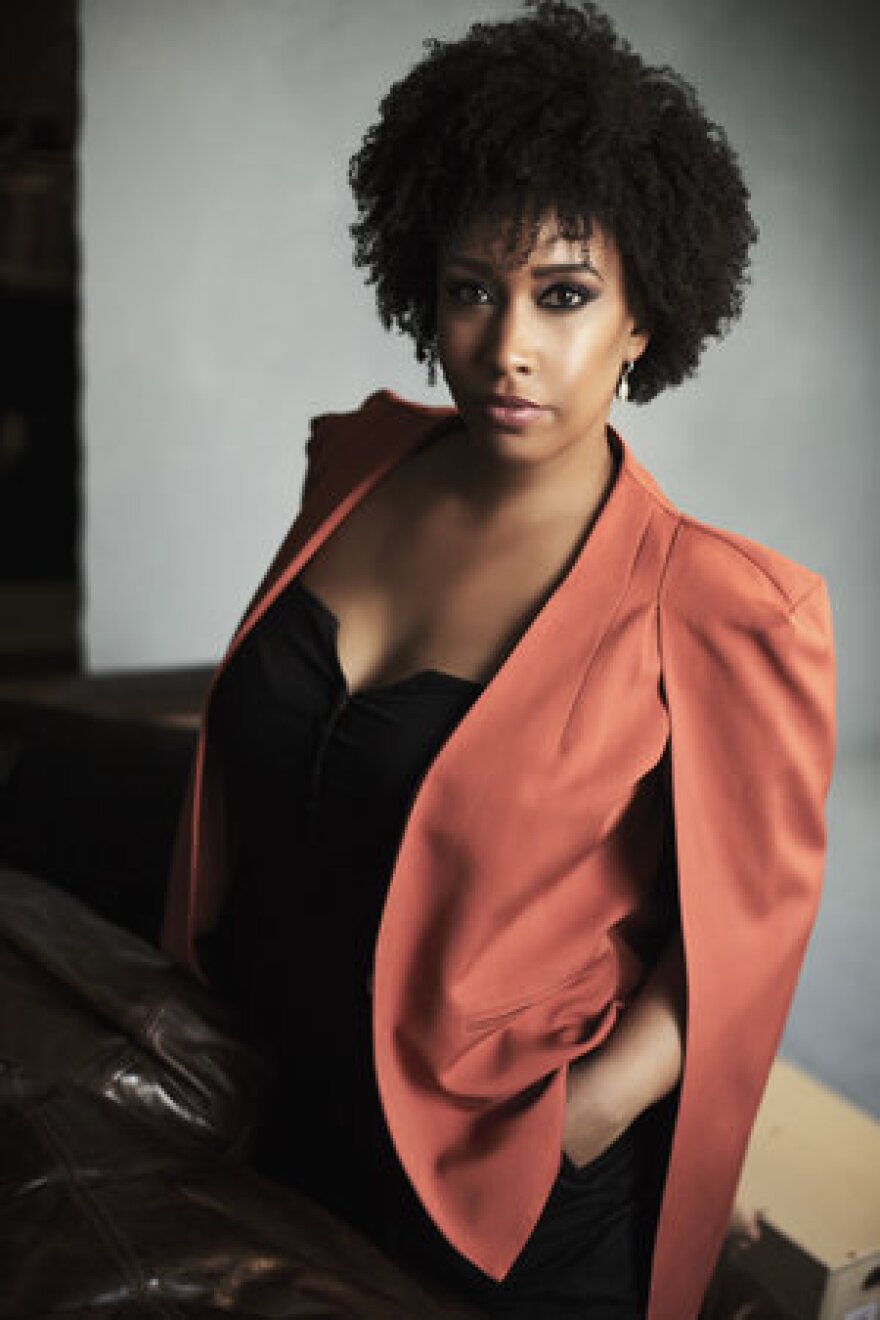On the surface of things, the plot of the new opera Blue is the simplest human story of all.
Two people fall in love and have a baby.
But Blue, the new work by Jeanine Tesori and Tazewell Thompson, is complicated by three facts: the couple is black, the dad is a cop, and their baby is a boy.
Early in the opera, the expectant Mother, played by Briana Hunter, announces to her friends that she’s fallen in love and married.

“Act I is easy for me to jump right into," Hunter said. “That’s probably the closest to how I am normally (laughs). And I love it. It’s just some of the most beautiful music I’ve ever had the privilege to sing. I feel so expansive and joyful, and to be able to sing on that stage is just such a tremendous pleasure for me.”
But when her friends discover her baby is a boy, Act I turns ominous. The Mother is warned that raising a black boy in America is dangerous.

Facts underscore the plot. Researchers at Boston University found that young black men are twice as likely as white males to die before age 20, likely due to gun violence. Black men have the lowest life expectancy of any major demographic group in the U.S., according to National Public Radio.
Those statistics haunt bass Kenneth Kellogg, who plays the Father in Blue. In real life, he has a four-year old son. For him, the biggest challenges of performing are emotional ones.
“There were some rehearsals where I literally broke down to my knees, crying. Sobbing,” Kellogg said. "My son is in the show, so I'm having to sing these things in front of my son and having to face my worst fears.”
Hunter is also affected by the intersection of art and reality. “We wake up, we look at our phones, we see the headlines and we go (sighs deeply.) You kind of have to swallow it and just carry on with your life, right? It’s been years of that and now we actually have a vehicle to let it out in the most visceral way possible. Singing it."

In Blue, both Hunter and Kellogg live out the everyday fear of many black Americans: that their male child will not survive into adulthood.
When the worst happens, the couple faces unimaginable anger and pain.
After the curtain comes down, Hunter said, audience members have approached her with tear-streaked faces, sometimes unable to speak. “I’ll say, do you need a hug?” she laughed. “I can do that.”
For his part, Kellogg said, several people have stopped him in Cooperstown while he’s out walking with his son. “There have been people, white people, who’d come up to me and literally stopped me in the middle of the street and have said, ‘Thank you.'” They’re sometimes on the verge of tears, he said, holding his hand and looking at his son.
“To hear the people are going home and questioning and crying and not being able to talk is beautiful to me,” Kellogg said, “Especially when they’re leaving the opera feeling something they’ve never felt before.”
The last performance of Blue at the Glimmerglass Festival is Thursday, August 22nd. (Click here for information.) Read a New York Times review here. The new co-production with Washington National Opera and Lyric Opera of Chicago will then travel to those cities.



